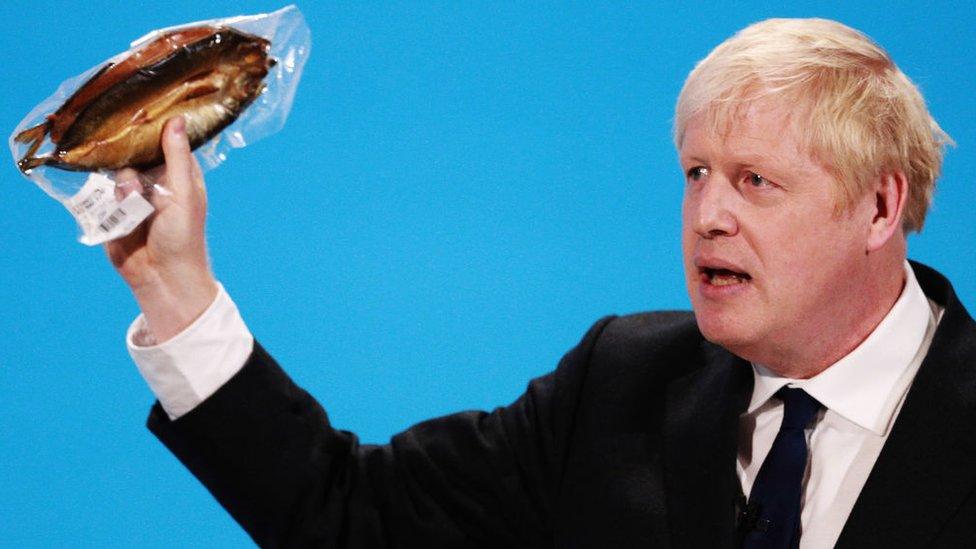Is Boris Johnson right about the rules on kippers?
- Published

Boris Johnson holding a kipper at the Conservative leadership hustings
Claim: EU regulations require kipper suppliers to keep their products cool with ice pillows when they are delivered.
Verdict: This is not true. EU regulation covers fresh fish, not smoked fish. The UK's Food Standard Agency says food manufacturers must transport food so it is fit to eat. This might require a "cool bag".
Speaking at the final hustings before the next prime minister is announced, leadership candidate Boris Johnson pulled a kipper out from under the podium.
Waving the smoked fish in the air, he said the manufacturer of the kipper - from the Isle of Man - was "utterly furious" with EU regulations.
"After decades of sending kippers like this through the post he has had his costs massively increased by Brussels bureaucrats who have insisted that each kipper must be accompanied by this: a plastic ice pillow."
He went on to say that once the UK leaves the European Union, the country would be able to "take back control of our regulatory framework".
Transporting kippers
The EU does have rules on temperature controls when transporting fresh fish. These are in place to ensure food is safe to consume.
However, when it comes to smoked products, such as kippers, it is up to national governments to set any rules.
Food safety regulations in the UK are dealt with by the Food Standards Agency.
Guidance from the agency on "distance selling" for businesses to customers says "all foods must be delivered to consumers in a way that ensures that they do not become unsafe or unfit to eat".
"Foods that need refrigerating must be kept cool while they are being transported. This may need to be packed in an insulated box with a coolant gel or in a cool bag."
In a statement, the FSA said: "In the UK, smoked kippers that are sold online must be kept to an acceptable temperature throughout transit. Businesses must ensure the materials used to do so are suitable for the food and the conditions of use."
Isle of Man and the EU
Additionally, the Isle of Man is neither in the UK nor the EU.
A Manx government spokesman said: "At present, our producers are required to comply with relevant Isle of Man legislation. The Isle of Man law is closely based on UK legislation and relevant EU food safety regulations. Where our goods are exported they are required to comply with standards of the destination market."
If the UK leaves the single market, it will be able to set its own regulations, but any products being exported to the EU to be sold will have to meet their standards.


